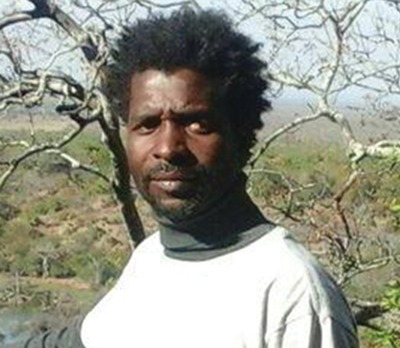
FAIRYTALES are common in Zimbabwe.
Stir the Pot by Paidamoyo Muzulu
One fairytale that has played itself again and again over the last 40 years is the lip-service to corruption.
As the euphoria of independence was beginning to wear-off, many citizens awoke to the realisation that the esteemed, venerated liberators had started feeding off the public purse – actually it was naked, rapacious primitive accumulation synonymous with feudal states.
In the late 1980s just like the turn of the century politicians had acquired fine tastes in flaunting their wealth – most of it earned through dubious means or outright abuse of public office. Like the rest of the world, our politicians had learnt how to bend procurement regulations.
With the rising crop of the nouveau riche – people who have recently acquired wealth – they wanted to splurge on cars. Toyota Cressida was the in-car – the automobile that heralded arrival in a country that was beginning to feel the effects of foreign currency shortages and had to rely on locally-assembled cars.
Politicians could jump the waiting list at Willowvale Motor Industries and get the Cressidas at the official price and resale the vehicle at twice or three times the price on the parallel market.
In a short space of time some ministers had bought up to 10 cars and sold them at the extortionist prices, making huge profits in the process.
- Chamisa under fire over US$120K donation
- Mavhunga puts DeMbare into Chibuku quarterfinals
- Pension funds bet on Cabora Bassa oilfields
- Councils defy govt fire tender directive
Keep Reading
The scandal came to be known as “Willowgate” and attracted a judicial inquiry that was headed by Justice Wilson Sandura.
The Sandura Commission did not disappoint and duly returned a detailed voluminous report that led to the successful prosecution of ministers like Dzingai Mtumbuka and Frederick Shava.
Shava’s case was unique to the extent that the judge imposed a custodial sentence. Mtumbuka in embarrassment left government and went into self-imposed exile.
Others like Enos Nkala had their political careers ended while other like Morris Nyagumbo allegedly committed suicide to avoid the ridicule of a public trial.
Many Zimbabweans of that era still joke that had Nyagumbo known the late former President Robert Mugabe would offer clemency to those convicted he may have not have killed himself.
Or better still if he had known Zanu PF behind the façade of a socialist organisation it was going to be the citadel of corruption he would not have not have hung his head in shame.
Mugabe’s leniency or weakness in dealing with corruption created a new culture of impunity among Zanu PF honchos not to mention party apparatchiks.
Being a party member was a passport to break every rule except to embarrass or challenge the party’s godfathers and the ultimate sin was speaking ill of Mugabe himself who had grown to be an institution unto himself.
The Zanu PF leaders in 1996 wiped a war veterans compensation fund within two years and long before ordinary party members and citizens knew there was such a fund.
Three quarters of the cabinet ministers then claimed compensation for injuries that cannot be found on a living person. Most said they had between 80% and 104% disability, rendering Zimbabwe a country that was led by invalids.
A judiciary inquiry was held again and no smaller individuals like minister Joice Mujuru had to return the compensation out of embarrassment.
However, the major beneficiary was Mugabe’s brother-in-law Reward Marufu and had to be rewarded with a diplomatic posting to Canada.
When tycoon Roger Boka’s bank – UMB – went bust at the turn of the century it became clear how Zanu PF ministers had brought the bank to its demise by borrowing beyond their capacity to repay.
Stealing had become fashionable and actually something celebrated in the corridors of power.
Something interesting is that when all these grand heists happen, Zanu PF leaders would at the end order an inquiry and a report would be produced whose recommendations never see the light of day unless one threatens the balance of power in the party.
This brings us to the ongoing COVID-19 pandemic.
Zanu PF using its two-thirds majority and hold on the executive made sure parliament was sent on recess.
The recess under the pretext of the threat of the pandemic and cramped space in the parliamentary chambers in the age of social distancing won the day.
However, in the short space of time with the house on recess, the Executive dished out multi-million contracts for COVID-19 pandemic.
Sakunda Holdings had two medical hospital licences approved in record time and a chartered plane was allowed to go to China to collect 30 tonnes of personal protection equipment, ventilators and face masks among other medical sundries.
A company reported to be linked to President Emmerson Mnangagwa’s son received a tender to supply medicines valued at US$20 million without going to tender.
In the same period, Treasury without going to tender awarded Sakunda another $3 billion contract to supply inputs for the disgraced Command Agriculture.
This was done despite the fact that the same company received contracts valued at US$3 billion between 2015 and 2018 and yet the country still faces worst food security situation in the last quarter century.
And true to Zanu PF modus operandi, Cabinet on Tuesday sat and resolved that “reputable and established companies be contracted to supply Covid-19 materials”.
The question is what would be achieved by closing the stable doors after the horses have bolted? The answer is the regime wants to sanitise its rogue actions by seeking condonation from Parliament after the act. Civil society and opposition can be a bit proactive and nip some of these things in the bud.











